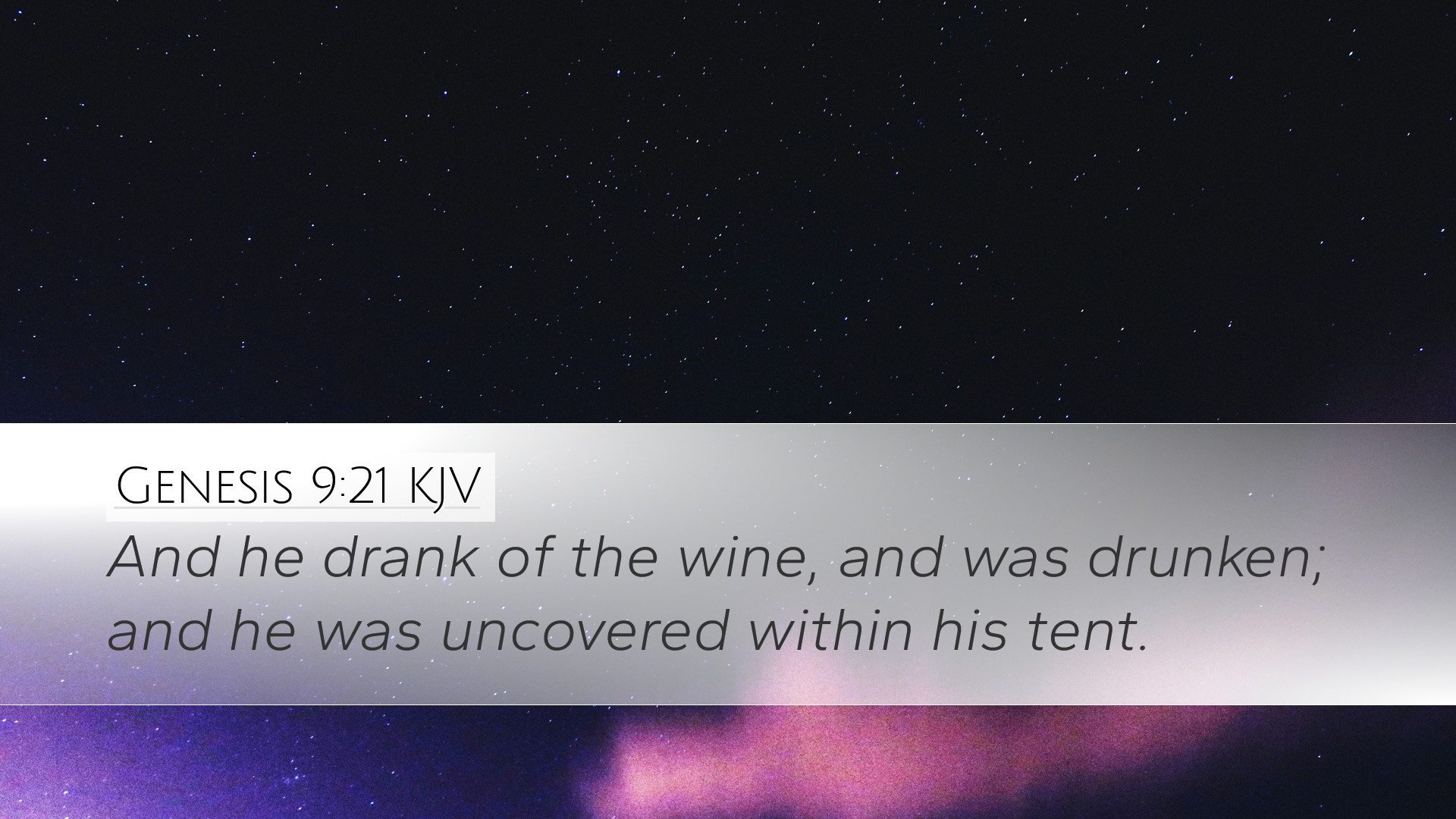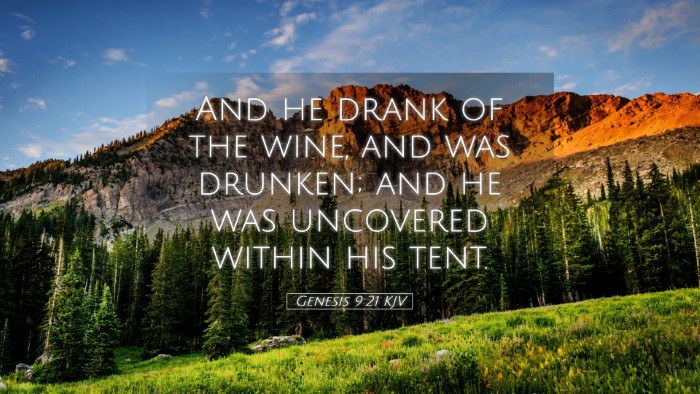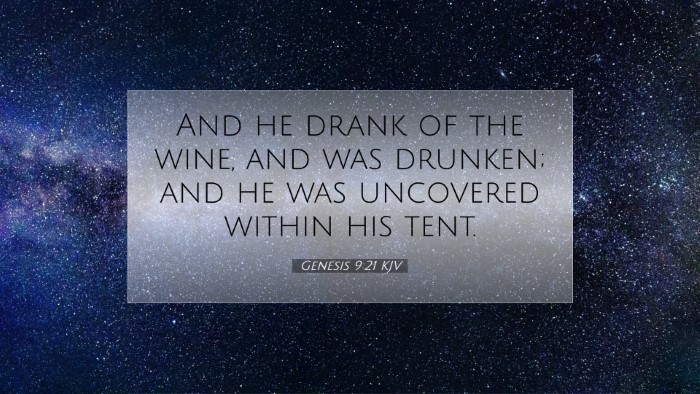Bible Commentary on Genesis 9:21
Genesis 9:21 states, "And he drank of the wine, and was drunken; and he was uncovered within his tent." This verse captures a significant moment in the narrative following the Flood, focusing on Noah’s personal conduct after this monumental event. To understand its implications, we will draw insights from the commentaries of Matthew Henry, Albert Barnes, and Adam Clarke.
Contextual Overview
This event occurs after God establishes His covenant with Noah, promising never to flood the earth again. Noah, having been a righteous man throughout the antediluvian period, now engages in an act that raises questions about human nature, accountability, and the consequences of leisure and indulgence.
Noah's Drunkenness
Henry remarks that Noah's drunkenness was a moment of weakness that stands in stark contrast to the honor he held among men of his time. This illustrates the theme that even the most righteous may fall. It serves as a reminder to believers that no one is beyond the potential of sin—including those who have been chosen for significant tasks by God.
Meaning of 'Drunkenness'
Albert Barnes elaborates on the nature of drunkenness, emphasizing how it leads to a loss of self-control and vulnerabilities that can become a source of shame. Here, Noah’s actions, while perhaps allowing for some cultural indulgence after the stress of the Ark’s experience, ultimately strip him of dignity. This transition from a revered patriarch to one who lays exposed challenges the reader's understanding of human frailty.
Significance of Being 'Uncovered'
Adam Clarke notes the expression "uncovered" reflects not just a physical state but a symbolic exposure of character. In ancient Near Eastern literature, being uncovered often signifies moral failure or disgrace. It underscores the idea that even individuals with divine favor must be vigilant against moral lapses. The implications of such exposure are broad, affecting family and societal dynamics.
The Role of Wine
The mention of wine is significant in biblical literature. It often represents either joy or temptation. Henry observes that Noah’s choice to drink wine at this moment speaks to human tendencies to seek comfort after grief, suggesting that the act of drinking can be innocent but also perilous. This encouragement for moderation is crucial for pastoral applications today.
Theological Implications
Barnes points out that Noah’s drunkenness and the ensuing disgrace have profound theological implications. It reveals the inherent sinfulness of humanity, showing that even divinely chosen individuals can succumb to temptation. This sets a stage for the ongoing narrative of redemption throughout the Scriptures—laying the groundwork for the need for grace.
Family Dynamics and Consequences
Clarke highlights the consequences of this event on Noah's family, particularly focusing on Ham's behavior. Ham’s dishonoring of his father represents a critical moment of disobedience and disrespect. This action and its repercussions suggest broader themes of family integrity and the consequences of sin affecting subsequent generations.
Pastoral Applications
For pastors and spiritual leaders, Genesis 9:21 serves as a cautionary tale about the nature of vulnerability after great accomplishments. Henry presents a pertinent exhortation for leaders to remain vigilant and humble, aware that moments of indulgence can lead to significant consequences that impact more than just oneself.
Encouragement in Weakness
There is also encouragement to understand that all individuals will face moments of weakness. As Barnes suggests, the story compels believers to seek accountability and grace in their lives. Just as Noah found forgiveness and purpose after his failure, others can lean into God’s mercies in acknowledging their shortcomings.
The Importance of Community
Clarke’s observations provide a foundation for discussing the importance of accountability within community. The family unit is a microcosm of the larger community, and how members treat each other reflects broader societal values. Understanding and addressing sin in one another's lives, with humility and love, fosters a healthier community.
Conclusion
In summary, Genesis 9:21 is more than just a historical account; it serves as a profound reminder of human frailty, the repercussions of sin, and the necessity of community and accountability in spiritual growth. The insights from Matthew Henry, Albert Barnes, and Adam Clarke encourage contemporary believers to apply these lessons critically and compassionately in their own lives and communities.


